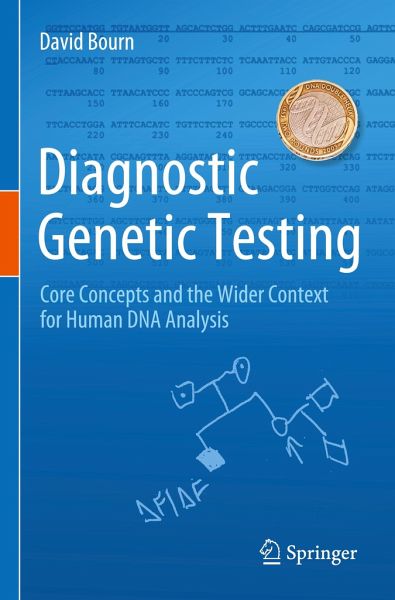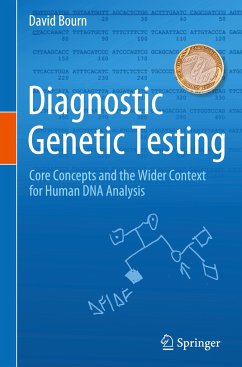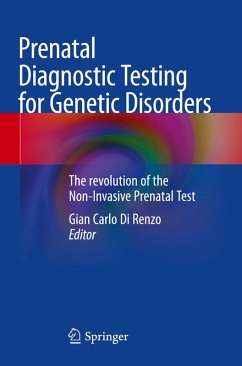
Diagnostic Genetic Testing
Core Concepts and the Wider Context for Human DNA Analysis
Versandkostenfrei!
Versandfertig in 6-10 Tagen
27,99 €
inkl. MwSt.
Weitere Ausgaben:

PAYBACK Punkte
14 °P sammeln!
Over the last decade, technical advances have allowed genomic testing which provides a great opportunity for diagnosis but also an increased chance of uncertain or unexpected findings. This book addresses many of the questions that arise in this context and summarizes the essential concepts in diagnostic genetic testing in an easy-to-read manner. It also covers some broad context for the practical and ethical implications of examining human DNA sequences.The book starts with a general introduction to the field, providing enough background to allow readers without any previous education in gene...
Over the last decade, technical advances have allowed genomic testing which provides a great opportunity for diagnosis but also an increased chance of uncertain or unexpected findings. This book addresses many of the questions that arise in this context and summarizes the essential concepts in diagnostic genetic testing in an easy-to-read manner. It also covers some broad context for the practical and ethical implications of examining human DNA sequences.
The book starts with a general introduction to the field, providing enough background to allow readers without any previous education in genetics to comprehend the material in the subsequent chapters. The main part explores differing aspects of human genetics and the wider implications of testing in these areas. The author covers not only single gene inheritance, but also genetic testing of cancers and how testing benefits the patients. Special emphasis is also given to the questions of genetics and identity. The concludingpart then draws the main themes together and summarises the wider significance of genetics. It also explores the gap between promises made for the impact of advances in genetics, and the actual benefits to patients.
The book is written for everyone interested to learn about the process of genetic testing and the broader implications. Moreover, it is aimed at health professionals with an interest in genetics, at students or scientific trainees looking for an introduction to diagnostic genetics, and at professionals in health policy or health journalism.
The book starts with a general introduction to the field, providing enough background to allow readers without any previous education in genetics to comprehend the material in the subsequent chapters. The main part explores differing aspects of human genetics and the wider implications of testing in these areas. The author covers not only single gene inheritance, but also genetic testing of cancers and how testing benefits the patients. Special emphasis is also given to the questions of genetics and identity. The concludingpart then draws the main themes together and summarises the wider significance of genetics. It also explores the gap between promises made for the impact of advances in genetics, and the actual benefits to patients.
The book is written for everyone interested to learn about the process of genetic testing and the broader implications. Moreover, it is aimed at health professionals with an interest in genetics, at students or scientific trainees looking for an introduction to diagnostic genetics, and at professionals in health policy or health journalism.












